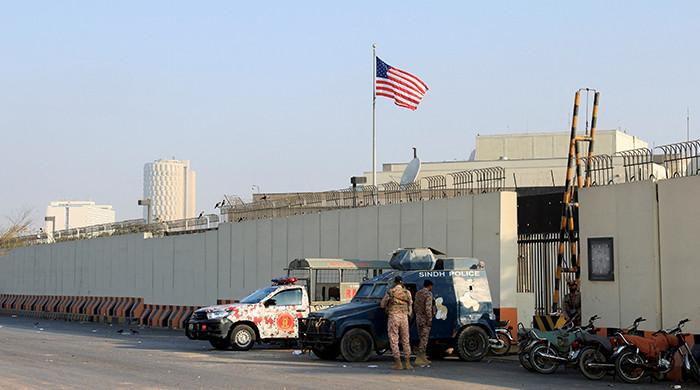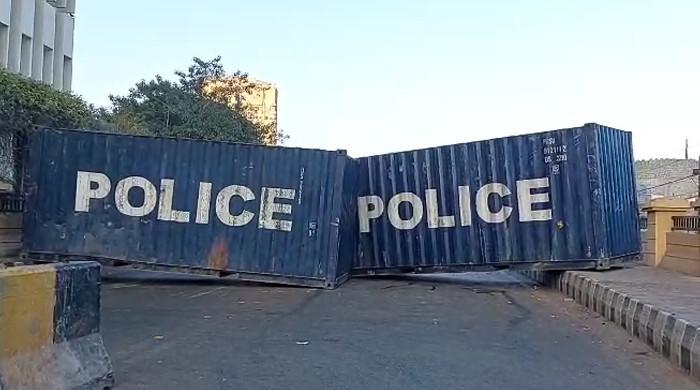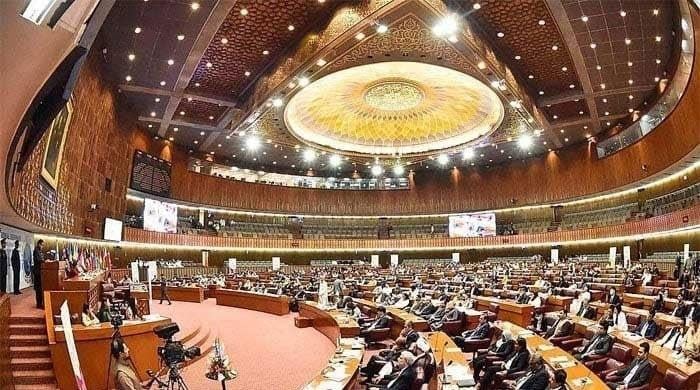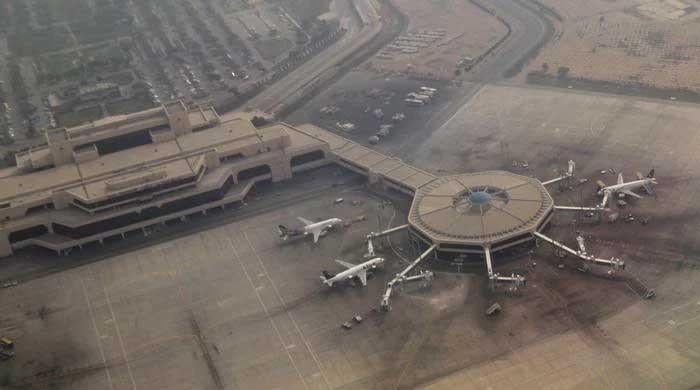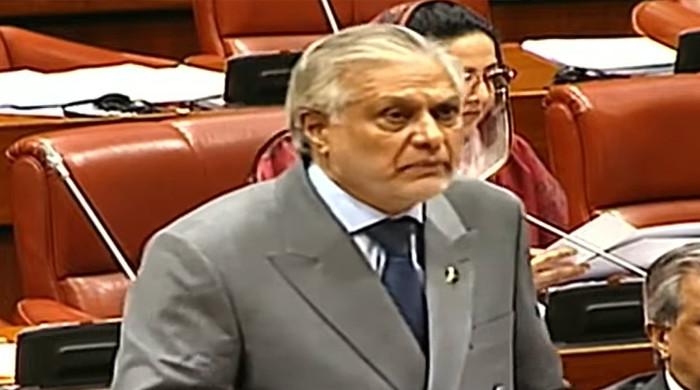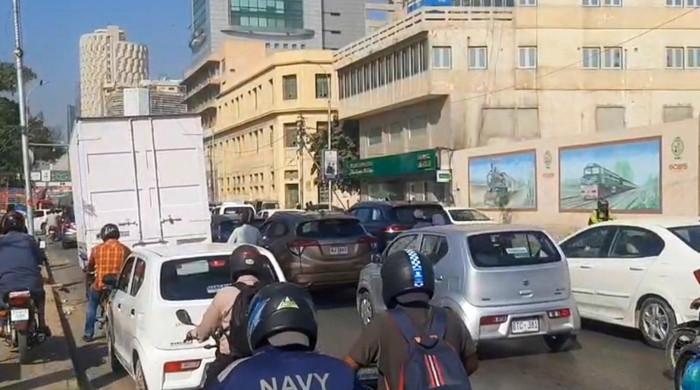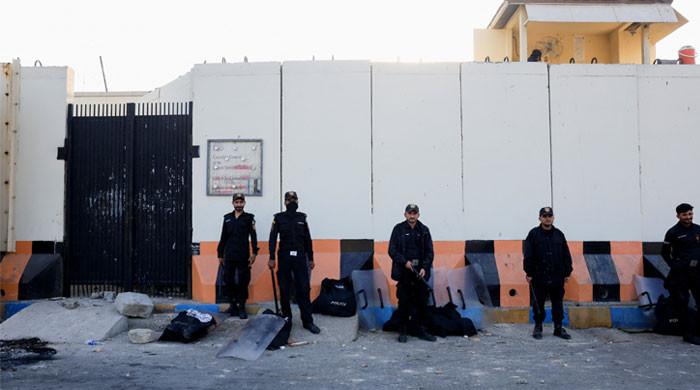Treasury, opposition unite in backing water reservoirs to curb flood devastation
PTI’s Ali Muhammad Khan urges national dam policy; federal minister Khawaja Asif calls to keep issue above politics
September 02, 2025
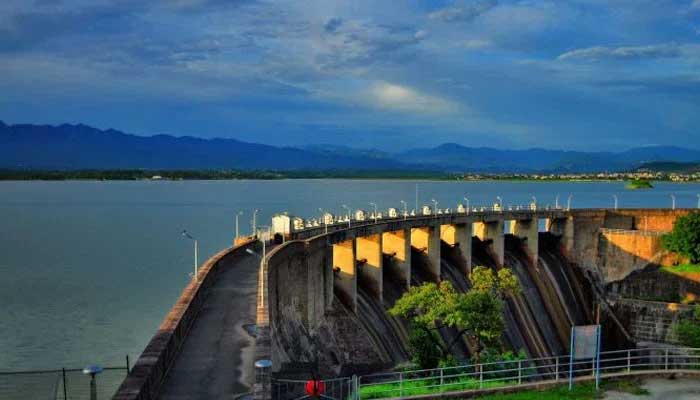
- Defence czar Khawaja Asif calls for construction of more dams.
- Floods in KP, Punjab a "man-made disaster", adds minister.
- PTI's Ali Muhammad calls for expedited work on Mohmand Dam.
ISLAMABAD: Voices in support of water reservoirs echoed from both sides of the aisle in the National Assembly, as parliamentarians expressed concern over the unprecedented flood situation in the country, The News reported on Tuesday.
Pakistan Tehreek-e-Insaf (PTI) MNA Ali Muhammad Khan called for a national policy for water reservoirs while Defence Minister Khawaja Asif advocated the construction of big and small dams, urging that the issue be kept above political differences.
The lawmakers' concern over shortage of water storage facilities comes in the wake of widespread inundation Punjab due to torrential rains coupled with water discharge from India.
Before Punjab, Khyber Pakhtunkhwa, Gilgit Baltistan and Azad Jammu and Kashmir regions were lashed with torrential rains resulting in landslides and flash floods which wreaked havoc in the country's north.
As per the National Disaster Management Authority's (NDMA) statistics, 874 people have died in various rain and flood-related incidents in the country since June 26.
KP leads with most fatalities with 488 deaths, followed by Punjab's 216, Sindh's 58, GB's 41, AJK's 37, Balochistan's 26 and eight in Islamabad.
Asif recalled that country’s two big dams were constructed by a dictator's regime because they managed to create consensus, whereas the politicians wasted time in political point-scoring.
The defence minister called for the construction of dams. "Raising bigger dams will take 10 to 15 years but we can at least start with small dams to store water and control the situation", he said.
He said it was a national issue, therefore, there should not be any differences, adding that there should be minimum agenda on which a consensus be reached.
"Do not do politics and block roads against the construction of water reservoirs," the defence czar remarked.
The minister further termed the unprecedented floods, particularly in Punjab and KP, a man-made disaster, noting that the political elite also share the responsibility for the disaster. Do not call it a natural calamity rather it is a man-made disaster caused by encroachment of riverbeds, he said.
The National Assembly while suspending the order of the day, including question hour, held a discussion on the flood situation.
The defence minister noted that it was high time for self-accountability after the nature and rivers are taking revenge for occupying waterways and riverbeds.
"Everybody has noted that hotels were also raised on riverbeds in Swat and other parts of the province and parts of the country", he said.
Asif said a contractor who belongs to his city, Sialkot, and is now a Senate member, sold out plots on land of nullahs and riverbeds, playing havoc with the nature. He said in February 2022, then deputy commissioner wrote a letter to the Punjab chief secretary and the scam was exposed after the floodwater swept away houses constructed on the land of nullahs and rivers.
He questioned how much land was retrieved from mafia and encroachments removed in the last three years. He agreed with the proposal of Ali Muhammad for constructing Mohmand Dam but he noted that there was immediate need for smaller dams which could be raised in the shortest possible time.
The politician called for a unified national response to mitigate human suffering and property damage caused by devastating floods. He also called for the devolution of power across the country and said local government system should be strengthened.
"We need a comprehensive and robust local government system which can serve people at their doorsteps", he said.
He mentioned that there has been no real devolution of power as powers remain concentrated in provincial capitals.
PTI's MNA stressed the urgent need for a national policy on water reservoirs and dams to mitigate the recurring devastation caused by floods across Pakistan.
He shared that he had arrived directly from the KP House, where the chief minister, provincial leadership, and party colleagues were holding meetings on the ongoing crisis.
He expressed gratitude to the speaker for offering prayers for the martyrs and victims, and commended the House for demonstrating unity on the issue.
The PTI lawmaker recalled that natural disasters had already hit Buner, Swat, and parts of Mansehra earlier, while Azad Kashmir also suffered heavily.
"Now Punjab is facing similar devastation, and this requires the federal government and provincial administrations to stand shoulder to shoulder," he said.
He proposed that Parliament should hold a dedicated session to discuss long-term solutions for water management, particularly the construction of new dams and reservoirs. Referring to past initiatives, he said the Mohmand Dam project was initiated during PTI's tenure and called upon Prime Minister Shehbaz Sharif's government to accelerate its work.
The PTI MNA urged all political parties to set aside politics on the issue, terming dam construction a matter of national interest. He underlined that no mega-dam of the scale of Mangla or Tarbela had been built for decades, despite the immense need.
"This Parliament can give the greatest gift to the nation by framing a comprehensive water storage policy, which will safeguard Punjab, KP, Azad Jammu and Kashmir, and Sindh from recurring floods," he said, emphasising that such an initiative would strengthen Pakistan’s future generations.
The Pakistan Peoples Party's Naveed Qamar emphasised the urgent need for a collective national resolve, involving all political parties, to enforce bans on deforestation, river and drain encroachments, and mismanagement of natural resources.
He said that the impacts of climate change were now visible in daily life, with glacial melt, blocked waterways, and unchecked deforestation intensifying disasters.
Citing expert warnings, the PPP leader said floods next year could be 22% more destructive, while in the long term, melting glaciers might dry up the Indus and other rivers, turning fertile lands into deserts and threatening centuries-old ecosystems.
Qamar said that the Parliament was the only platform to build consensus and guide government action through constructive criticism and solutions.
"Politics has its time, but in the face of national calamities, we must rise above partisanship and work together," he said. He added that flood preparedness must begin immediately.




